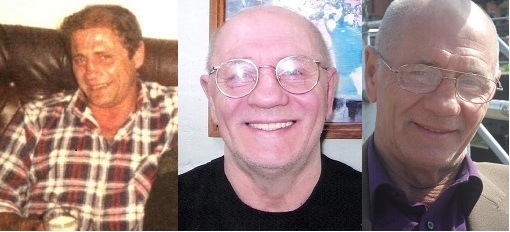I've got a couple of things to say about that.
Firstly, this country has no constitution, never has had. The nearest we have ever been to one is Magna Carta, signed by King John in 1215 in Runnymeade Meadow. However, even that was not a constitution. It was merely the Barons (and those who commanded large gangs of cutthroats) wanting to keep their pillaged loot and not be put on trial for stealing it in the first place - much like our present bunch of bandits, generally referred to as the House of Commons.
So, we have never had a constitution and for those who keep referring to things as though we do have one, well, that is sheer humbug and gammon to confuse the ordinary man into thinking he has rights. He doesn't.
If he did, then so many of the poor things which go on in this wonderful sceptred isle would not be tolerated - and aren't in countries where they do have a constitution.
Secondly, how can the Treasury Solicitor object to the fact that my victory over the Hosts of Error would bring about the practical downfall of the system? If that's the case, then it is a reflection on the inhumane system, not on me!
It merely demonstrates the fact that the system being operated is unfair and unjust and that it is imperative that it be corrected as soon as possible.
William Garrison said:
I am in earnest - I will not equivocate - I will not excuse - I will not retreat a single inch - and I will be heard!Lord Hewart (1870 - 1943) said in a judgement in Rex v Sussex Justices, 9th November 1923 (Kings Bench Reports, 1924, Vol. i, p. 259):
It is not merely of some importance but it is of fundamental importance that justice should not only be done, but should manifestly and undoubtedly be seen to be done.Then of course we have Magna Carta itself:
To no man will we sell, or deny, or delay, right to justice.Then let us not forget Lord Milner, that staunch devotee of justice, as fine a man who ever donned a black cap. He said:
If we believe a thing to be bad, and if we have a right to prevent it, it is our duty to prevent it and damn the consequences.Now, I could go on all day quoting these eminent figures from the past, who all said the same thing really:
Do the right thing! As long as a man goes about doing what he knows in his very soul is the right thing, then he will not go far wrong.That last one is my own of course. But if a man should do what he absolutely knows is the wrong thing, for the sake of expediency or some other reason, then he must learn to live with himself and hope that one day he will be forgiven. Unfortunately, that won't help the people whose lives have been ruined by his acts.
Perhaps the Treasury Solicitor should consider Parliament? He'd fit in there all right.
The Voice in the Wilderness
